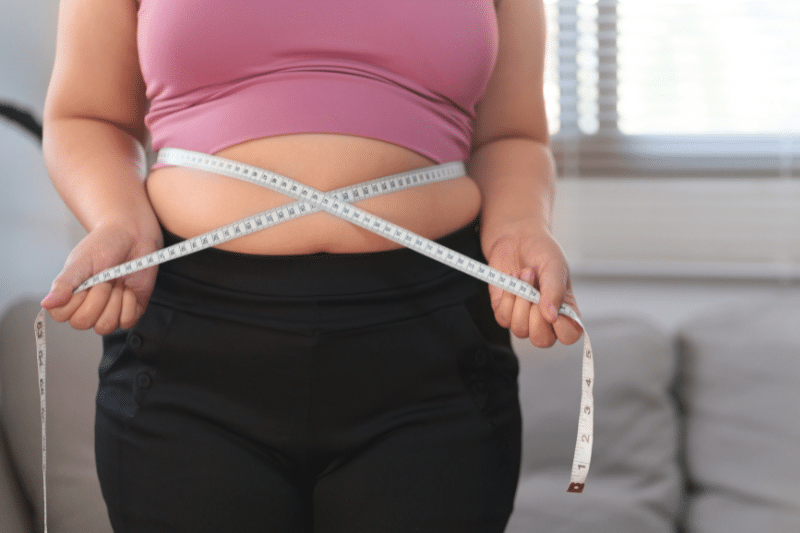Many of us want to lose weight fast. Whether for an event, medical necessity, or a way to lose weight to boost self-esteem and health. But while fast weight loss is possible. It’s just we need to understand how many calories, how to lose muscle, how much sleep – the methods, the risks, and the sustainability of it. This guide will go into proven ways to lose weight fast. As well as backed by stats, expert opinions, and examples to help individuals make informed decisions.
How to Lose Weight Fast?
Losing weight fast means creating a big calorie deficit. By eating fewer calories or combining a low-calorie diet with high-intensity exercise. Diet plans like the ketogenic diet or intermittent fasting with regular exercise routines. For instance, high-intensity interval training (HIIT) is often recommended. But we need to be cautious with these methods.
According to a study by the NIH, those who followed a low-calorie diet with intermittent fasting lost more weight in 12 weeks. Compared to those who only followed a low-calorie diet. However fast weight loss should be monitored by healthcare professionals to avoid health risks.
How Do People Lose Weight So Fast?
Fast weight loss usually comes from drastic diet changes. including exercise, or medical interventions like weight loss pills or surgery. For example, low-carb diets that cut out carbs completely can cause quick water weight loss followed by fat weight loss efforts. Moreoever, bariatric surgery which is a more extreme measure has been shown to result in even modest weight loss even in a short period.
According to the American Society for Metabolic and Bariatric Surgery, patients can lose 30-50% of their excess weight in the first 6 months after surgery.
How Does Your Body Lose Weight?
First, your body uses glycogen stores in the liver and muscles for energy. Since glycogen is bound to water, this initial phase of weight loss is usually water loss. As glycogen stores deplete your body starts to break down fat for energy and that’s when fat loss happens.
During the first week of a low-carb diet, you can only lose lean muscle, and a lot of water weight. As this phase progresses fat becomes the primary source of energy and that’s when you’ll see more fat loss over time. However, his process has to be managed carefully to promote weight loss, avoid muscle loss, and ensure nutrient intake is adequate.
What Are the Risks of Rapid Weight Loss?
While the allure of rapid weight loss is strong, the risks are significant. Rapid weight loss can lead to muscle loss, nutrient deficiencies, gallstones, heart disease, and a slowed metabolism.
According to the Centers for Disease Control and Prevention (CDC), it is recommended to set a weight loss goal of 1-2 pounds per week as a safe and sustainable weight loss approach.
Drastic calorie reduction can also lead to fatigue, dizziness, and even heart problems. For instance, extremely low-calorie diets, sometimes as low as 800 calories per day, can cause the body to enter a state of starvation. This not only slows metabolism but also puts stress on the heart, as the body tries to conserve energy.
A study published in the American Journal of Clinical Nutrition highlighted that very low-calorie diets could lead to serious cardiac complications, particularly in those with pre-existing health conditions.
Can Rapid Weight Loss Be Sustainable?
Sustaining rapid weight loss is challenging due to the body’s natural response to calorie restriction. When you lose weight quickly, your metabolism slows down to conserve energy, making it harder to continue losing weight or maintain the loss.
According to the National Institutes of Health (NIH), after rapid weight loss, the body produces higher levels of ghrelin, the hunger hormone, which increases appetite and may lead to overeating.
To keep the weight off you need to transition to a more balanced approach. Particurlalry includes gradual diet changes, regular exercise, and ongoing lifestyle adjustments.
A study in the New England Journal of Medicine found that those who exercised regularly and ate well after losing weight were more likely to keep the weight off long-term.

How To Lose Weight Fast – Quick Methods
How to Lose 10 Pounds in a Week?
Losing 10 pounds in a week is a big ask. It requires severe calorie restriction, high exercise, and possibly a low-carb or ketogenic diet. Eventually, it will result in rapid water loss followed by fat loss. But please note that such extreme measures should only be done under medical supervision to avoid serious health risks.
For instance, a typical day on such a plan might be black coffee and eggs for breakfast. Lean protein like chicken breast with leafy greens for lunch. And grilled fish with steamed vegetables for dinner. Combined with daily intense exercise this will create a calorie deficit. But this is not sustainable and you will regain it quickly once normal eating resumes.
Can I Lose 20 Pounds in a Month?
Losing 20 pounds in a month requires a very strict regimen that includes a very low-calorie diet, daily exercise, and possibly meal replacements or fasting protocols. This is extreme and should only be done under medical supervision.
According to a study in The Lancet Diabetes & Endocrinology rapid weight loss surgery can be effective in the short term but without proper management, the weight is often regained within a year.
For example, a 1200-calorie diet with 2 hours of exercise a day could potentially help you lose weight 5 pounds a week. However, the body will suffer from nutritional deficiencies, muscle loss, and fatigue.
What is the Best Crash Diet?
Crash diets like the military diet or juice cleanses promise rapid weight loss by cutting calorie intake drastically. They will deliver quick results but are nutritionally unbalanced and hard to maintain.
The Journal of the American Medical Association says crash diets can cause serious health problems including electrolyte imbalance, heart disease, and nutrient deficiencies.
The military diet involves eating a specific calorie-restricted menu for 3 days and then 4 days of normal eating. While this will give you short-term weight loss, the lack of variety and nutrients makes it unsustainable. Long-term success requires a more balanced approach that doesn’t compromise health.
Are There Safe Ways to Lose Weight Fast?
Yes, there are safer ways to lose weight fast that focus on nutritional balance while reducing calories. These are intermittent fasting, high high-protein diet, and increasing physical activity.
A study in Obesity Reviews found that intermittent fasting can lead to significant weight loss while preserving muscle mass and improving metabolic health.
Following the 16/8 method of intermittent fasting where you fast for 16 hours and eat within 8 hours can help control calorie intake while still getting enough nutrients. This combined with regular exercise can lead to fat loss without the risks of these diets.
How Does Intermittent Fasting Help with Fast Weight Loss?
Intermittent fasting helps with weight loss by limiting the eating window, and naturally reducing calorie intake. 16/8 and alternate-day fasting are popular methods. This reduces calories and boosts metabolism by improving insulin sensitivity and fat oxidation.
According to a Cell Metabolism study, intermittent fasting reduces visceral fat, improves metabolic markers, and supports weight loss.
During the 16/8 method, you might skip breakfast and eat lunch and dinner within an 8-hour window. This controls hunger and reduces calorie intake which leads to weight loss. Plus the fasting window allows the body to go into fat-burning mode which accelerates weight loss.

How To Lose Weight Fast – Dietary Approaches
What is the Best Way to Fast to Lose Weight?
The best fasting method for weight loss is personal preference and lifestyle. The 16/8 is popular for its simplicity. If you can handle more restrictive eating windows the 5:2 diet where you eat normally for 5 days and drastically reduce calories on 2 days might be more effective.
A study in the International Journal of Obesity found the 5:2 method is as effective as continuous calorie restriction for weight loss with the bonus of being easier to stick to.
Furthermore, on fasting days you might eat 500-600 fewer calories, and focus on high protein low carb meals to maximize fat loss while preserving muscle mass.
What to Eat for Fast Weight Loss?
For fast weight loss eat foods low in calories and high in nutrients including whole grains. Lean proteins like chicken, turkey fish, and veggies especially leafy greens are great choices. They keep you full without adding too many calories.
According to a study in Journal of Obesity & Metabolic Syndrome (JOMES) high protein diets are most effective for weight loss as they increase satiety and overall calorie and food intake reduces.
The meal might be grilled chicken breast, a large serving of spinach, and a side of broccoli. These foods are not only a nutritious diet but also healthy fats and low in calories. In addition, high in fiber which helps in digestion and keeps you full for longer. Also drinking plenty of water, avoiding sugary drinks, saturated fats, and controlling calorie intake help you lose weight.
How Low Carb Diets Affect Weight Loss?
Fad diets like low-carb diets or ketogenic diets cause fast weight loss by making the body burn fat for energy instead of carbohydrates. This metabolic state is called ketosis and results in huge fat loss, especially in the abdominal area.
According to a study in Annals of Internal Medicine, participants on a low-carb diet lost more weight and had better cholesterol levels than those on low low-fat diet.
Such as a typical day on a ketogenic diet might be scrambled eggs with avocado for breakfast, a salad with grilled chicken and olive oil for lunch, and a steak with asparagus for dinner. This diet shifts the body’s energy use from carbs and blood sugar to fats and rapid fat loss. However, you must balance healthy fats in the diet with adequate micronutrients to avoid deficiencies.
Can Meal Replacements Help with Rapid Weight Loss?
Meal replacements like protein shakes or bars can help reduce calorie intake while ensuring nutrition. They are often used in structured weight loss programs as they provide a controlled amount of calories and nutrients making it easier to follow a low-calorie diet.
A study in The American Journal of Clinical Nutrition found that using meal replacements can lead to more weight loss than traditional calorie-restricted diets.
For instance, replace one or two meals a day with a protein shake or meal bar to make meal planning easier and curb overeating. But choose meal replacements high in protein and low in sugar.

How To Lose Weight Fast – Challenges and Considerations
What is a Safe Weight Loss Per Week?
A safe, weight loss program is 1-2 pounds per week. This allows for fat loss, not muscle loss, and not the health risks that come with rapid weight loss.
According to the CDC, losing weight at this pace is more likely to lead to sustainable results as it encourages more healthy eating habits, not extreme measures.
If someone wants to lose 1-2 pounds per week they might cut 500-1000 calories a day through diet, exercise, or a combination of both. This gradual approach ensures the weight loss is fat not water or muscle.
What are the Challenges of Rapid Weight Loss?
Rapid weight loss has many challenges, including nutrient deficiencies, muscle loss, and slowed-down metabolism. It can be mentally and physically exhausting leading to burnout and weight increase.
A study in The Lancet found that people who lost weight fast were more likely to regain it within a few years compared to those who lost weight safely and gradually.
For example, following a strict low-calorie diet can lead to feelings of poor sleep, deprivation, and increased hunger making it hard to stick to the diet long term. Rapid weight loss can also cause hormonal imbalances leading to fatigue, mood swings, and reduced concentration.
How Does Stress Affect Weight Loss?
Stress can kill weight loss by increasing cortisol, a fat-storing hormone, especially in the belly. Chronic stress can also lead to emotional eating where we eat high-calorie comfort foods as a coping mechanism.
A study in Psychosomatic Medicine found that stress-induced eating disorders can sabotage weight loss and lead to weight gain.
Additionally, someone under chronic stress might find themselves reaching for sugary snacks or fast food as a way to cope, which can quickly derail a healthy weight loss plan. Managing stress through meditation, yoga or regular exercise is key to both stress management and a weight loss plan.
Can Fast Weight Loss Cause Muscle Loss?
Yes, fast weight loss can cause muscle loss especially if it’s extreme calorie restriction without enough protein. Muscle loss slows down metabolism and reduces strength and endurance.
A study in the Journal of Nutrition found that we need to consume healthy foods with enough protein and do resistance training to preserve muscle mass during weight loss.
Similarly, someone on a very low-calorie diet without strength training might lose weight fast but find that much of that weight is muscle not fat. To minimize muscle weight loss strategies make sure to include resistance exercises like weight lifting in your routine and ensure your diet has enough protein.

How To Lose Weight Fast – Targeted Strategies
How to Lose Belly Fat or Tummy Fat?
Losing belly or tummy fat requires diet, exercise, and lifestyle changes. Whole foods, reducing sugar, and increasing protein and fiber are the key dietary changes. Exercise, especially cardio and strength training helps to burn fat, and High Intensity Interval Training (HIIT) is more effective in targeting belly fat.
A study in Obesity found HIIT was more effective than moderate exercise in reducing belly fat.
Likewise, incorporating HIIT workouts like sprint intervals or circuit training into your routine can help burn belly fat more than steady-state cardio alone. Reducing sugary drinks and processed foods can also help decrease visceral fat, the fat that surrounds internal organs.
What Are the 3 Ways for Losing Weight?
The 3 best ways to lose weight naturally are a balanced diet, regular exercise, and behavior modification. A balanced diet means eating nutrient-dense foods in appropriate portions to create a calorie deficit without depriving the body of essential nutrients.
Regular exercise includes both cardio and strength training to burn calories and build muscle. Behavior modification means changing eating and exercise habits together, managing stress, and having a healthy relationship with food.
Not to mention, someone who wants to lose weight might start by tracking their food to see where they can improve, like reducing portions or cutting out some sugary foods and snacks. They might also start a regular exercise routine that includes cardio and strength training and work on finding ways to manage stress that don’t involve food.
Can Spot Reduction Work for Fast Weight Loss?
Spot reduction, the idea that you can lose fat from a specific area of your body by targeting it with exercise, is a myth. Fat loss occurs throughout the body, not just in specific areas. Instead of focusing on spot reduction, it’s more effective to aim for overall fat loss through a combination of diet and exercise.
Nonetheless, doing countless crunches won’t necessarily reduce belly fat if you’re not also losing weight overall. A more effective approach is to combine a healthy diet (healthy oils) with a full-body workout routine that includes both cardio and strength training. This will help reduce body fat overall, including in targeted areas.

How To Lose Weight Fast – Long-Term Success and Maintenance
How Do I Maintain Weight Loss After Rapid Weight Loss?
Maintaining weight loss after a rapid weight loss phase requires a focus on long-term lifestyle changes. This includes continuing to eat a balanced diet, engaging in regular physical activity, and monitoring your weight to catch any gains early.
The National Weight Control Registry tracks people who have successfully maintained weight loss and found that consistent exercise, daily weighing, and a healthy diet are common strategies among successful maintainers.
Besides this, someone who has lost weight quickly might continue to follow a healthy eating plan or Western diet that emphasizes whole foods and appropriate portions. They might also commit to regular exercise, such as walking, swimming, or strength training, and weigh themselves regularly. With the help of a prompt journal, an unconventional weight loss method is getting popular to ensure they stay on track.
What’s the Role of Exercise in Keeping Weight Off?
Exercise is key to keeping weight off because it burns calories, builds muscle, and boosts metabolism. Regular exercise also prevents the metabolic slowdown that happens when you lose weight.
A study in the American Journal of Physiology found that people who exercise after weight loss are more likely to lose weight safely and keep it off long-term.
Mixing cardio like running or cycling with strength training. Such as weight lifting or bodyweight exercises can help keep muscle mass and prevent weight regain. Consequently, being active all day, like taking walks, standing instead of sitting, and finding ways to move more in your daily routines.
How to Avoid the Yo-Yo Effect After Quick Weight Loss?
The yo-yo effect where people regain the weight they lost quickly is common after quick weight loss. To avoid this, focus on sustainable healthy lifestyles and changes not quick fixes. Gradually transition from a strict diet to eating healthy foods with a balanced approach, continue exercising regularly, and weigh yourself to prevent weight regain.
Generally, after quick weight loss, one might lose weight gradually and increase the calorie intake to a maintenance level while mindful eating, including whole grains and nutrient-dense foods. Continue exercising regularly and weigh yourself to catch any gains early.
What are the Psychological Impacts of Rapid Weight Loss?
Rapid weight loss can have some big psychological impacts – stress, anxiety, and pressure to maintain. The rapid changes to your body weight and appearance can also lead to body image issues. Approach weight loss with a healthy mindset set realistic goals, and get support when you need it.
A study in Psychology & Health found that people who focused on health and wellbeing. Not only weight loss itself was more successful at maintaining weight loss long term.
Instead of focusing solely on the number on the scale. Individuals might set goals around fitness, energy levels, or overall health. Get support from friends, family, or a counselor if the psychological challenges of the weight loss journey become too much.
Rapid and healthy weight loss can be achieved through diet, exercise, and lifestyle changes. But you need to approach weight loss plans do it with caution and focus on health. Sustainable and healthy weight- loss requires a balanced approach. Including gradual dietary changes, regular physical activity, and ongoing healthy lifestyle changes. By setting realistic goals, understanding the risks, and making long-term changes. Individuals can achieve and maintain their weight loss goals and keep their health.











